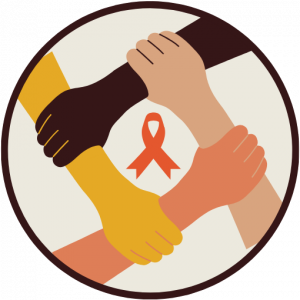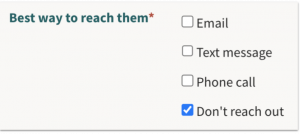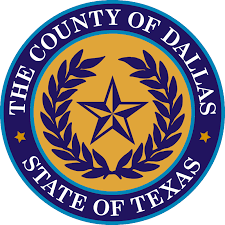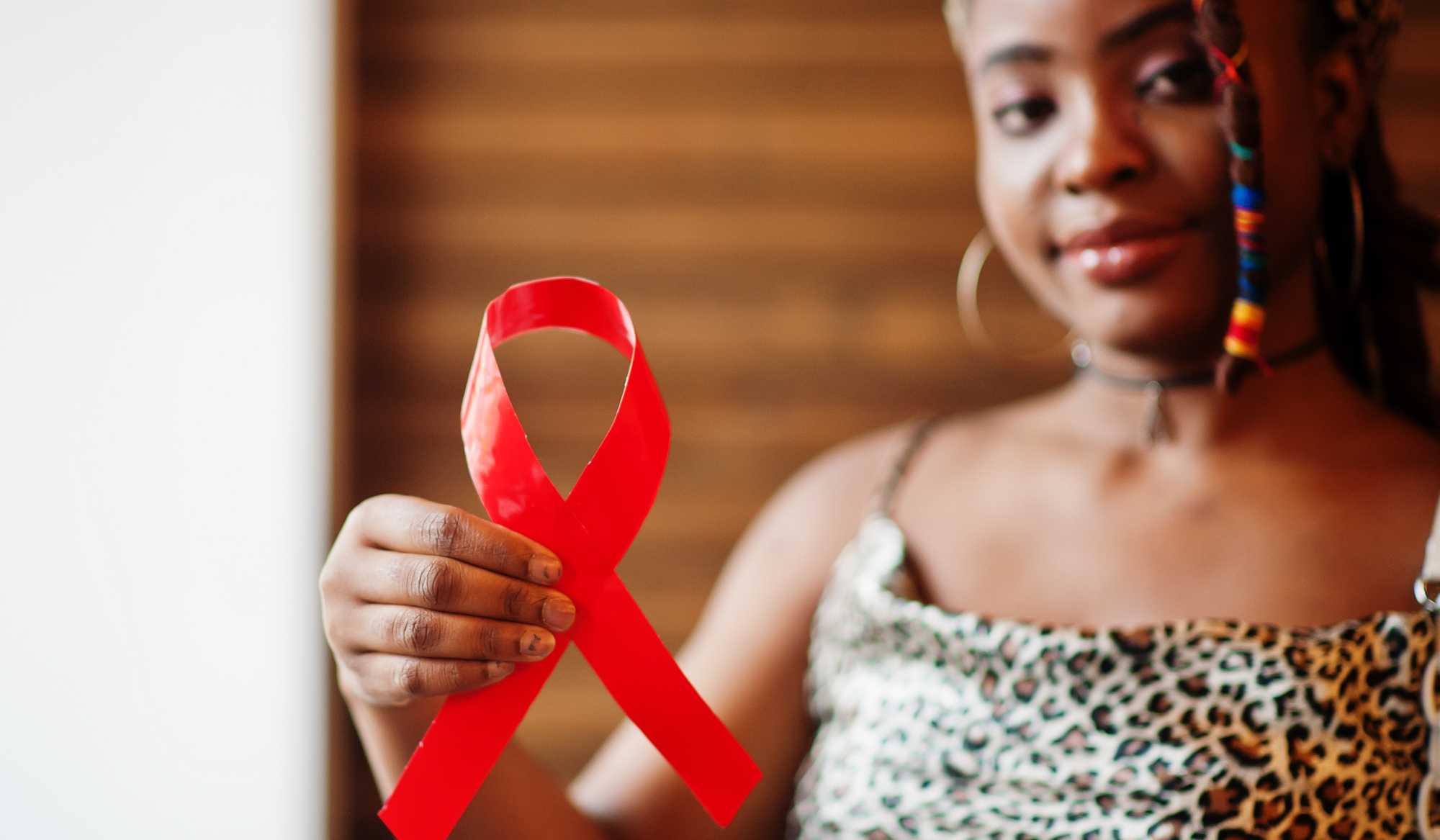Social Care Without Stigma: How Findhelp Supports People Living with HIV/AIDS
HIV, or the human immunodeficiency virus, weakens someone’s immune system by destroying their cells that fight disease and infection. While there is currently no cure for HIV, with proper medical care, it can be controlled. If left untreated, HIV can lead to AIDS (acquired immunodeficiency syndrome).
According to the Centers for Disease Control and Prevention (CDC), an estimated 1.2 million people in the United States had HIV at the end of 2021, and of those people, about 87% knew they had HIV (source). CDC data shows that from 2017 to 2021 HIV diagnoses in the US decreased 7% overall, but there were still more than 36,000 people who received an HIV diagnosis in 2021 (source). The CDC has a goal to decrease the number of new HIV diagnoses to 9,588 by 2025 and to 3,000 by 2030.

Darker colors = higher rates of infection.
In this post, the second in a two-part series timed to World AIDS Day on December 1 (read the first part), we’ll discuss the social care challenges faced by people living with HIV / AIDS, how the Findhelp platform is designed to support them, and innovative ways that we’re collaborating with our customers for treatment and prevention.
How Stigma Harms People Living with HIV/AIDS
There is widespread social and individual stigma surrounding HIV: negative attitudes and beliefs about people living with HIV. As a result of this stigma, people living with HIV often face discrimination (behaviors that result from the negative attitudes or beliefs held by others). HIV discrimination is the act of treating people living with HIV differently than those without HIV, because of the stigma associated with the disease.

According to the National Institutes of Health, social stigma surrounding HIV can result in:
- Isolation
- Social exclusion / loss of social support
- Diminished self-esteem
- Restricted opportunities for employment, education, and personal relationships
HIV stigma can also lead to “reluctance in seeking HIV testing, disclosing HIV status, or accessing healthcare services, hindering timely diagnosis and engagement in care” (source).
How Our Platform Makes it Easy to Find Help
As highlighted by the American Psychological Association, HIV is a disease that “is embedded in social and economic inequity, as it affects those of lower socioeconomic status and impoverished neighborhoods at a disproportionately high rate” (source). Our nationwide platform only lists free or reduced-cost programs that provide direct services to people in need, to address the social impacts of chronic disease and illness.
Easily Identify Non-Medical Needs
Customers can implement custom or standard social needs assessments on their Findhelp platform. Individuals can self-assess or be helped by a staff navigator.
- Based on the responses, the platform will display a curated list of partner resources or a personalized search that highlights relevant programs and services.
- Our platform provides filters (“HIV/AIDS”, “AIDS Treatment”, “AIDS-Related Lymphoma”) for people to easily find and connect to both medical treatment and targeted support resources provided by more than 1,200 programs nationwide.
- People with chronic illnesses like HIV/AIDS often struggle with decision fatigue, and we do our best to make it easy to quickly connect to resources that can help.
Social Care Without Stigma
Our platform can be used by individuals to self-navigate, anonymously and securely. Furthermore, we have a “Don’t reach out” option on our referral form that gives the program a heads up that someone needs their help but keeps the initial outreach in the hands of the individual, as an added layer of privacy.

Our platform is HITRUST certified and HIPAA-compliant.
Supporting People Living with HIV / AIDs
We partner with several of our customers nationwide to connect people to local resources. Here are some highlights of how these organizations successfully partner and innovate with us to lift up their communities.
Siloam enriches the well-being of people living with HIV/AIDS by providing a broad range of integrative mind, body and spirit services and programs. When the city of Philadelphia shut down in early 2020 due to the COVID-19 pandemic, Siloam’s Executive Director, Sarina DiBianca, got all of their classes online in only four days, and used it as an opportunity to open them up to participants anywhere in the world, in part by listing them on the Findhelp platform.
Classes like chair yoga, grief group, trauma support, and breathwork were now available to anyone with an internet connection. Siloam’s Man Cave Support Group and HIV/AIDS Support Group remained reserved specifically for those with an HIV/AIDS diagnosis, but their trauma, grief, and movement classes were opened to the public. These programs were listed on the Findhelp platform, and Sarina turned on referrals in hopes of reaching more people in need of these important mental and emotional health services.
Today, Siloam receives around 100 referrals a month on the Findhelp platform from individuals and care navigators nationwide. Not only does the Siloam team respond to every referral, they also update the status to let care navigators know that they reached out. When Sarina emails a client, she shares all of the programming at Siloam. She knows that someone might have been referred to a yoga class but actually needs the Grief Group. Even if someone isn’t ready to attend right away, they have the knowledge that there’s a safe space waiting for them and lots of different ways to get involved and be supported.
Last week our storytelling initiative, Findhelp films, released a documentary short about Siloam’s holistic work to support people living with HIV/AIDS.

Dallas County has a population of 2.6 million and is the ninth-most populous in the United States. Its county seat is Dallas, which is also the ninth-largest city in the United States. It’s a very diverse county, with only 28% of residents identifying as non-Hispanic White (according to the 2020 U.S. census. Their mission is “To provide quality service, public safety, and positive behavior change through the use of effective techniques for the betterment of the community.”
Dallas County is also on a mission to end the HIV Epidemic in Dallas by 2030.
- Their EHE initiative seeks to accelerate progress in HIV prevention and treatment to reduce new transmissions by 90% in 2030. The county began the multi-pronged End HIV Dallas County campaign in February 2022 to promote HIV awareness, testing, and treatment.
- In February 2023 Dallas County launched their End HIV Dallas platform (powered by Findhelp) to connect residents to resources for treatment, counselors, addressing basic needs, and other vital support.
- Dallas County is forging strong partnerships with local organizations devoted to treating and preventing HIV and working with Findhelp to establish a trusted network of programs to serve HIV-affected individuals with dignity and ease.

CommUnityCare (CUC) is a federally qualified health center (FQHC) that serves uninsured and underinsured people in Central Texas.
- In 2022, CUC launched their Community Resources platform (powered by Findhelp) to provide their staff with a tool to make closed-loop social care referrals on behalf of patients, starting with their Community Health Workers, Social Workers, Care Coordinators, and other patient navigators.
- Patient records are available via an integration between Findhelp and CUC’s electronic health record, Epic, which streamlines their work and prevents double-documentation.
- The CUC Community Engagement team have also completed Findhelp trainings to strengthen their outreach and engagement with area community organizations that provide resources for patients.
CUC operates a health center dedicated to providing innovative HIV treatment and prevention to those living with HIV and those at a high risk of contracting the disease.
- CUC social workers can navigate their Community Resources platform to place referrals to additional resources in the community.
- They also promote patient autonomy and anonymous self-navigation via the patient-facing version of the Community Resources platform, which can be accessed through their Epic MyChart patient portal.

The Washington, D.C. Department of Health (DC Health) promotes health, wellness and equity across the District. Their responsibilities include identifying health risks; educating the public; preventing and controlling diseases, injuries and exposure to environmental hazards; promoting effective community collaborations; and optimizing equitable access to community resources.
- DC Health launched LinkU (powered by Findhelp) in 2019 in an effort to provide accessible self-navigation services for residents in the greater-DC area seeking support for a variety of social needs. Since its inception, supporting people living with HIV / AIDS has been a primary goal of the LinkU platform.
- DC Health’s HAHSTA Division (HIV, AIDS, Hepatitis, STD, and Tuberculosis Administration) have consistently used LinkU to refer DMV residents to programs assisting with testing, care management, and social support services for communities impacted by these conditions.
- More recently, this group launched the DC ENDS HIV campaign, coinciding with the Positive Voices Podcast which will be releasing its second season in early 2024, and is focused on raising awareness for, and destigmatizing, care resources for HIV / AIDS positive individuals and their loved ones.

Integral Care is a federally qualified health center (FQHC) in Austin, Texas that supports adults and children living with mental illness, substance use disorder, and intellectual and developmental disabilities through a 24-hour helpline, counseling, drug and alcohol treatment, and housing.
- Integral Care launched their Community Referral Hub platform (powered by Findhelp) in 2021, primarily used by their Community Health Workers to make social care referrals for patients and accept inbound referrals to their clinics and programs.
- Integral Care serves as the local Mental Health and Intellectual and Developmental Disability Authority for Travis County. They provide HIV services including individual and group counseling, education and harm reduction supplies, and direct outreach to community services.
Partnering for Good
If you’d like to learn more about how we partner with customers nationwide and can support your organization’s social care goals, connect with our team.


